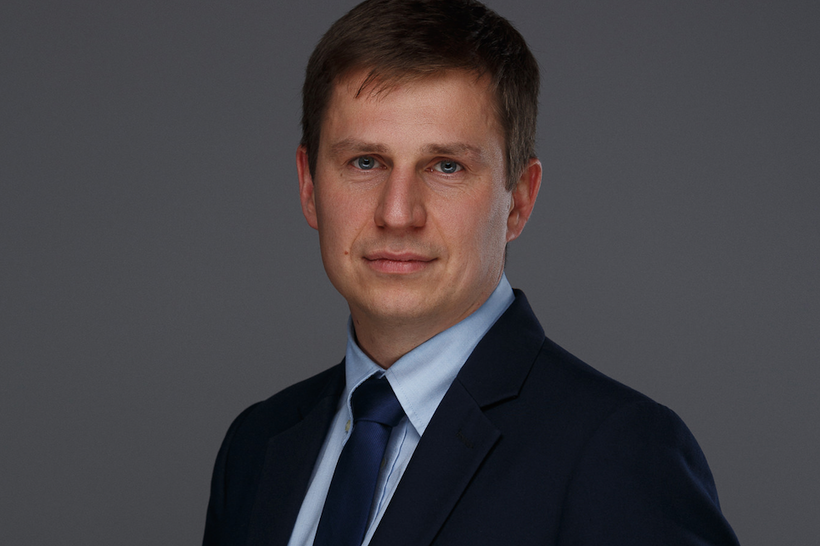Conferences are the platforms to attract investments – Kaspars Rozkalns, Director General LIAA

Latvia is a leading destination for meaningful conferences and congresses in context with research, politics and business. In the past months, a series of stories about knowledge and innovation in Latvia has showcased new contextual aspects to meeting planners in Europe.
In a summarizing interview with Kaspars Rozkalns, the director of LIAA — the Investment and Development of Latvia — he shares his views about how the dynamics and the spirit in the destination can help to get the meetings’ industry ready for the future.
1. What is your strategy to position the meetings sector within the full scope of LIAA?
During the pandemic, our priorities have been reset, and we have learned a lot. For the meetings sector, we realize that the actual conference part during events can be rather easily replaced by digital and virtual meetings. Also, digital conferences reach far bigger audiences, but conversion rates don’t follow in the same level, so they can’t be the only solution for the future.
I believe that future conferences will be flexibly organized in hybrid formats and thus reach out to wider and more international audiences. The challenge will be to find new ways to get things really done — it is the networking part at events, where the important things happen. We have to combine the best from both worlds in the right way.
The key task here for LIAA will be to create new narratives and a collaboration across industries. Conferences are the platforms to attract investments and to demonstrate cluster or ecosystem leadership. Take our upcoming Deep Tech Atelier or the annual 5 G Techritory Forum.
Both events showcase what Latvia is strong in and where we see the future. They attract leading minds and international businesses in context with the topics and integrate other related conferences in a perfect environment for all — mutually enhancing the depth of the subjects.
In the meantime, Key Speakers at hybrid events (what we call “phygital” events) are present in Latvia and turn the spotlight on the destination. With the right programs and stories to accompany the knowledge part of the conference, this will lead to more interaction in those sectors and involve all kinds of unique experiences in our destination, once a personal attendance will be possible again.
In Latvia, we do not want to attract business (and conferences for that matter) through low prices or other discounted ways. We want the business to come here because we lead in innovation, brains and offer unique opportunities and insights.
2. How can LIAA support the MICE industry and its stakeholders in Latvia?
I see the MICE industry as an important part of everything else going on in the economy — we need to get the sector ready for the future and educate about all contexts and overlaps.
We are a niche country for industry segments and business clusters. And we all are ambassadors for our country — we need to talk to the world about our goals and the knowledge and possibilities we have. Latvia is a perfect laboratory to test integrated story-telling. There is so much brain and innovation here, the country is perfectly connected to the world — we all need to carry forward that big picture. That is what we have started #MissionLatvia for.
In order to support the industry, we recently have started a new grant for local organizers of meetings or conferences, to apply for when bringing a business here. This is to help them with the extra efforts that are necessary and to share the risk in case of cancellations. This new incentive is for the professional meetings’ industry only.
We also develop a new traffic light system to identify real-time changing COVID-19 incidence situations, which allows flexibility to switch programs among locations and areas in Latvia, if needed.
3. With #MissionLatvia, you are going a new way to brand Latvia in an open and collaborative innovation process. Can you tell us more about this concept?
We are working on a unified story, together with the Institute of Latvia and the narrative shall be told in collaboration with all our Latvian people and society. A unified story of all “ambassadors” so to say. It will show on Latvia.eu in an expanded platform.
The concept is to identify 2-3 “meta” goals, that everyone can identify with and which are important for everyone. Only then we can inspire all people to work together to reach these goals. We need to reach a collaborative agreement about how we want to position the country. The challenge here is to identify both simple, big goals and to include all our expertise and industries in the steps necessary to reach those goals.
I give you an example from a recent brainstorming session we had for the project. One of the goals we came up with was “Latvia will be the country with the longest life span and best health in Europe in 2050”.
As everybody will want to live longer and better in good health, a collaborative agreement can be reached for such a goal — which is qualitatively connected across many segments: from digital health to new agricultural methods to circular economy, only a combination of business segments and personal responsiveness can create the conditions to achieve the goal.
We rather identify 2-3 goals only and succeed to inspire everyone to collaborate in reaching those goals than listing a whole catalogue with too many details and thus confuse people and have them not identify.
4. What are the most innovative business clusters in Latvia?
Rather than picking out singular segments, we prefer to think in “ecosystems” that help to achieve big and valuable goals across industries. Such Latvian RIS3* industries are biomedicine, photonics and smart materials, smart mobility and smart cities — they all create value chains across clusters and segments. The hardest part is to identify and combine these ecosystems in the most senseful way, all with the big goals in mind and apply /make use of as many EU funding projects (like the Horizon 2020 program) as possible to further develop. The term “Ecosystems” we use is just a name to identify value chains and cross-industry integrative approach.
There is a lack of digitalization and innovation in the tourism and the meetings’ industry.
We want to support with methods and tools so the companies and stakeholders can develop and create their future by themselves — according to what they see as being their key identities in the different Latvian regions. We would prefer this to be lined out mainly around regional knowledge clusters, but there are other priorities like history, nature and traditions, so the actual experiences and programs will vary.
We will take it even one step further and enable the local MICE industry to integrate and market the local innovation and the key identification factors.
5. Do you expect MICE travel to be the same as it was before the pandemic?
I do not think the classic way of travelling will continue in the meetings and incentive industry. There will be more focus on the actual purpose of the conference — for example planning a conference about innovation related to one of our segments and combine with a side program of topically related, safe products. The safe environment is one very essential Latvian USP.
We are currently on our way to define the missions. The focus is set on engaging public support in building a movement to address global challenges.
6. What role plays the protection of the environment in #MissionLatvia?
As we live in a very green and healthy environment, the society sometimes can take it for granted — hence it might not be seen as a valuable goal to focus on. Consequently, we see the green issues not as a goal per se, but as a necessary step towards a bigger goal (e.g. like living longer and healthier) …
All elements needed to reach that goal, will have to include “green” developments, as circular economy, carbon neutrality etc. will prove to be cheaper on the long run and will bring advantages in reaching the overarching goals.
7. How do you know all that — as to shape the future and the economy for a whole country?
That is not me alone… we have a fantastic team of innovation specialists, staff working with the companies and industries here, start-up experts, social anthropologists (“why do we do what we do?”). So our goal is to align the agency along all major business and societal issues in our country.
That means we need to set goals which are high and challenging to reach, to constantly revisit them and analyse why they might fail, to scale up and to inspire the people.
8. A final message from you: why should organizers come to Latvia with their meetings and events?
I’d say that Latvia is the next big thing – to come here means to experience something bigger and more powerful happening than just individual or company goals. It is to see how integration, collaboration, and joint efforts will bring us further.
Business people want and need to be ahead of the game and that is what our Mission-driven approach will lead to. We evaluate Latvia by leading sectors. It is not one sector competing with a similar sector here or in one of the other Baltic neighbour countries. All industries shall align to work on something greater. We are an area of full-cycle technology, there to create the best possible conditions for everyone: a longer life and good health.
We want to switch from competition to goal oriented roles. Collaboration will be important to create new success models.
*RIS3 = „Regional Innovation Strategy for Smart Specialisation“
Copywriting: Johanna Fischer.

